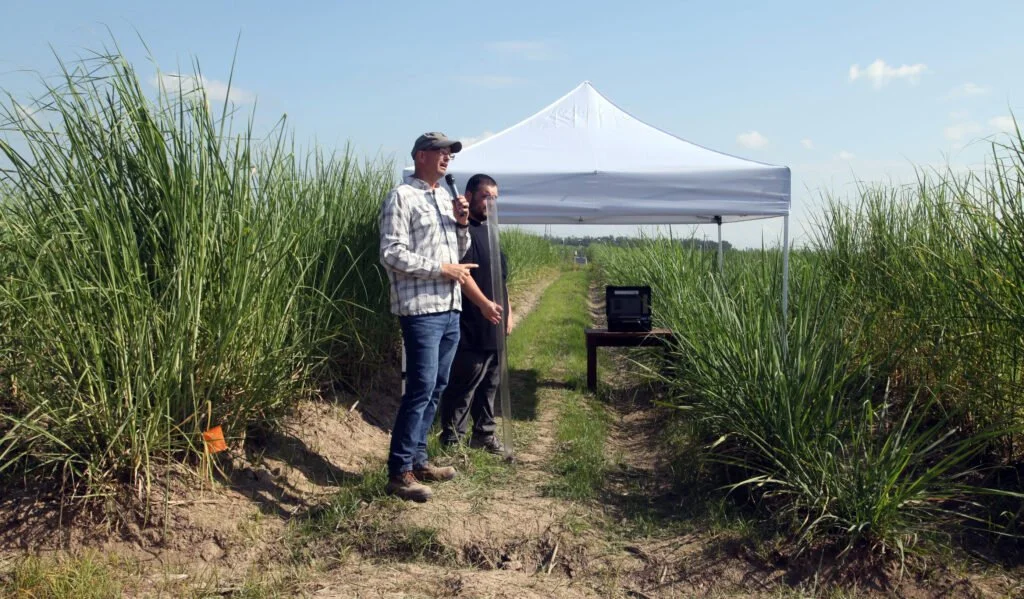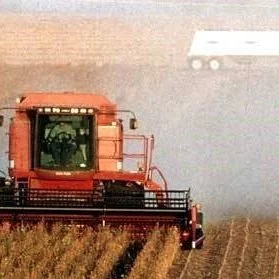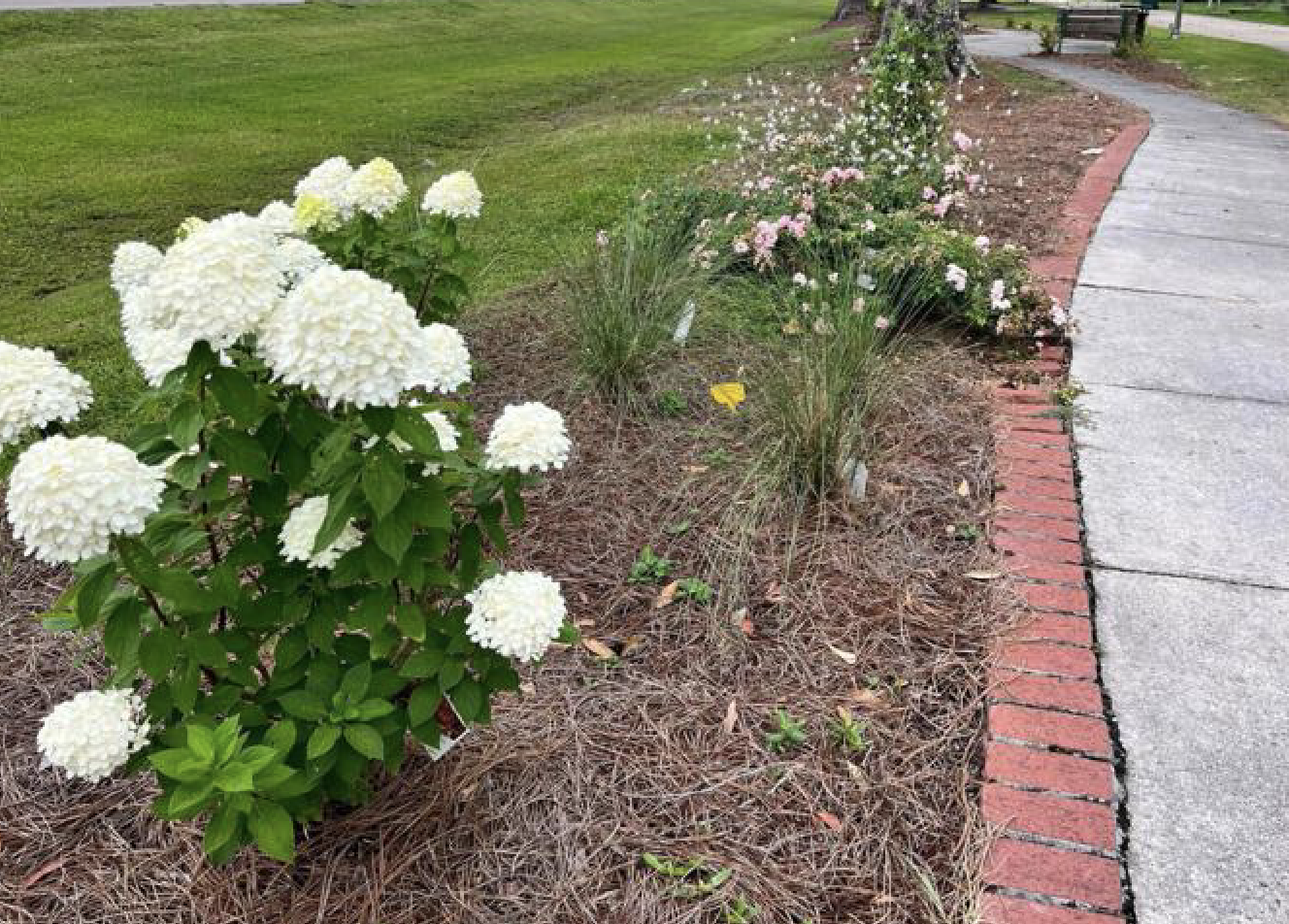The United States Department of Agriculture’s Sugarcane Research Unit in Houma hosted a June 1, 2023 sugarcane field day at its Schriever farm to highlight its centennial of cane research activities in Louisiana.
Read MoreIt is important to follow the label when applying any pesticide, including those labeled for harvest aid in soybean. Some restrictions found on harvest herbicide labels include soybean growth habit (indeterminate versus determinate), growth stage, percent mature pods and percent leaf drop. It is important to follow restrictions on spray volumes and preharvest intervals. Table 1 list herbicides that are labeled for preharvest application in soybean.
Read MoreRecently, there have been increased reports of corn earworms infesting soybean fields across the state. Corn earworm (aka bollworm or soybean podworm) can cause occasional but severe damage to soybean. The primary damage caused by corn earworm occurs during the larval stages when the insect feeds on the soybean flowers and pods. This feeding activity leads to direct yield losses as pods abort, or the larvae consume or injure developing seeds.
Read MoreThe reniform and Southern root-knot nematodes are the two most common nematodes found in Louisiana agricultural fields. These microscopic animals can cause big yield losses, and one scientist with the LSU AgCenter is working on solutions to this problem. AgCenter reporter Craig Gautreaux has the story.
Read MoreHot, sunny weather has quickly matured rice crops across Louisiana, and combines will soon begin harvesting what is expected to be a good crop for growers. LSU AgCenter reporter Craig Gautreaux has the story from southwest Louisiana.
Read MoreThe LSU AgCenter hosted the 53rd annual Louisiana 4-H and FFA State Horseshow from July 10 to 14, at the Lamar-Dixon Expo Center in Gonzales, celebrating the project achievements of youth in the Louisiana 4-H and FFA projects during the past two years.
Hilton Waits, State Horse Show superintendent, reports this year 170 exhibitors participated with 240 horses.
Read MoreThis month’s 2023/24 U.S. corn outlook calls for fractionally higher supplies and ending stocks. Corn beginning stocks were lowered by 50 million bushels, as greater feed and residual use for 2022/23 more than offsets reductions in corn used for ethanol and exports. Corn production for 2023/24 is forecast up 55 million bushels as greater planted and harvested area from the June 30th Acreage report is partially offset by a 4.0-bushel reduction in yield to 177.5 bushels per acre.
Read MoreRivers are Life is proud to announce Louisiana State University has joined the initiative as a contributing academic expert. LSU will bring its deep experience in river conservation and environmental education to Rivers are Life, consulting with River Heroes to further their work to protect river ecosystems worldwide.
Read MoreA major goal of the Louisiana Farm to School Act is to promote the use of locally grown and raised foods in school nutrition programs. One avenue to achieve this is for school food service personnel to source ingredients for school cafeteria meals within the state. In doing this, school districts directly support their local economies and community members who grow these products.
Read MoreThe LSU baseball and women’s basketball teams aren’t the only champs in the state. Members of the Louisiana 4-H Shooting Sports Team are once again reigning national champions after defeating competitors from across the United States.
Read MoreIdentifying climate-smart strategies for water management is the goal of a three-year rice production study funded by the U.S. Department of Agriculture.
Changyoon Jeong, LSU AgCenter water quality specialist, will lead the study at the Red River Research Station in Bossier City and the H. Rouse Caffey Rice Research Station in Crowley
Read MoreThe Louisiana Master Gardener program, offered by the LSU AgCenter, is designed to train volunteers with a balanced, integrated, and practical course in gardening.
It is a 14-week course focusing on gardening topics based on Louisiana gardening needs. It will include a balance of lectures, student presentations, and hands-on activities.
Read MoreAn elementary school implements a gardening and culinary program to teach students how to prepare recipes using produce grown in their own school garden through the help of a local farmer.
A school district makes changes to its nutrition policy and introduces a life skills course that includes using a vocational kitchen and raising a school garden whose produce is sold at the local farmers market and included in cooking demonstrations for the community.
Read MoreThe theme of this year’s 4-H University was “Excel” and hundreds of extraordinary students from across the state did just that, winning and placing in a variety of categories from e-sports to insect identification and beyond.
Read MoreSugarcane varieties are the lifeblood of the Louisiana sugar industry. Therefore, variety selection is one of the most important decisions on the farm. This decision has long term consequences. The goal is to maximize profitability on every acre of the farm for each year of a long crop cycle.
Read More














